Psychology: Vygotsky's Social Cognitive Theory and Schema Theory
VerifiedAdded on 2022/10/04
|6
|318
|20
Homework Assignment
AI Summary
This assignment delves into Vygotsky's social cognitive theory and schema theory, crucial concepts in psychology. It begins by defining Vygotsky's theory, emphasizing the significance of social interaction in cognitive development, and explores the influence of the environment on a child's thought processes. The assignment highlights the practical applications of Vygotsky's theory, such as its utility in educational settings and its role in fostering social interactions. It then transitions to schema theory, defining schemata and their impact on how individuals organize and interpret information. The assignment covers the different types of schema and how these schemata are organized in the human brain, providing a clear understanding of how humans process and store information. The assignment also touches upon the limitations of Vygotsky's theory, such as the premature end of his research work and the vagueness associated with the concept of the Zone of Proximal Development (ZPD).
1 out of 6
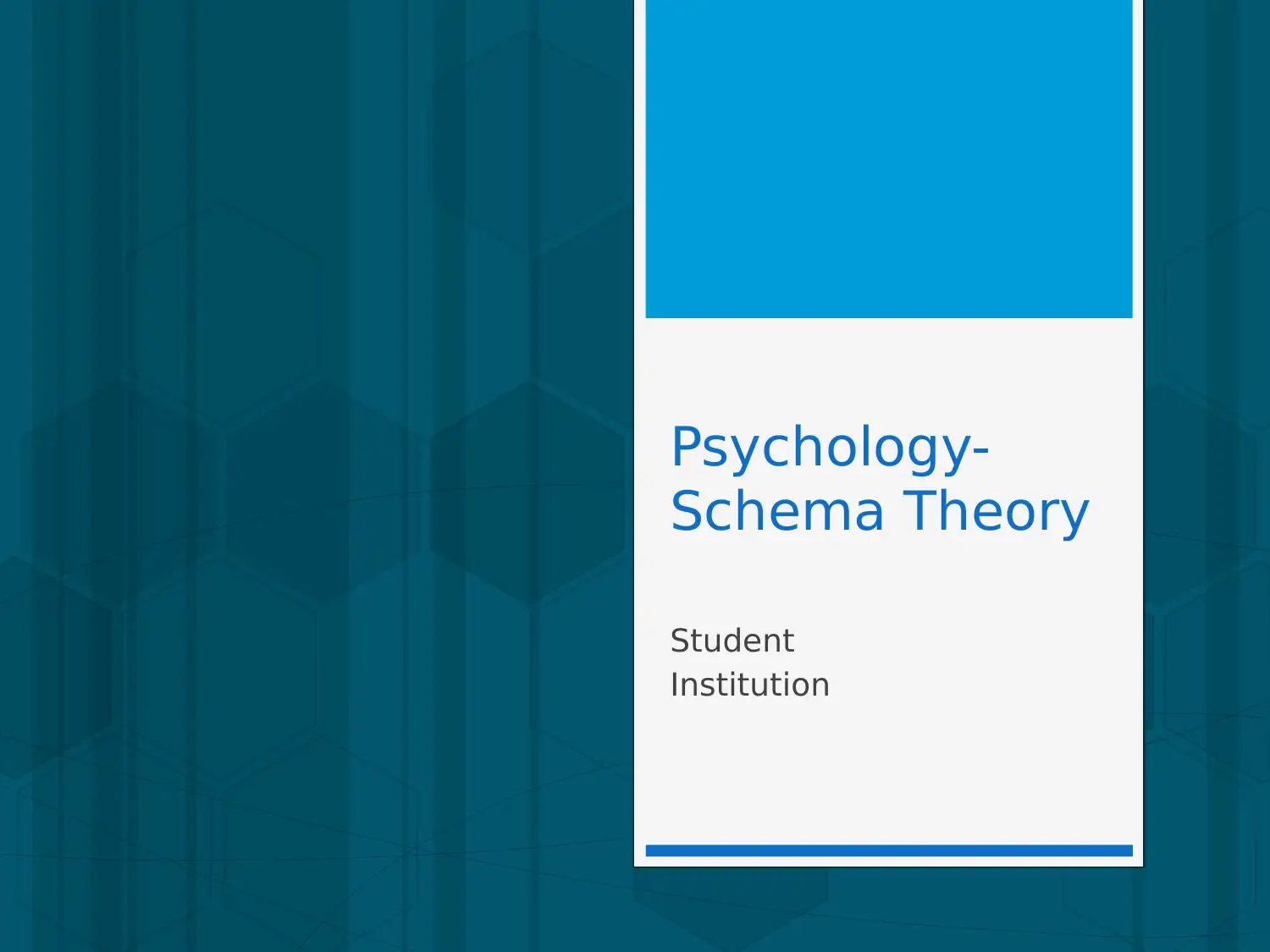
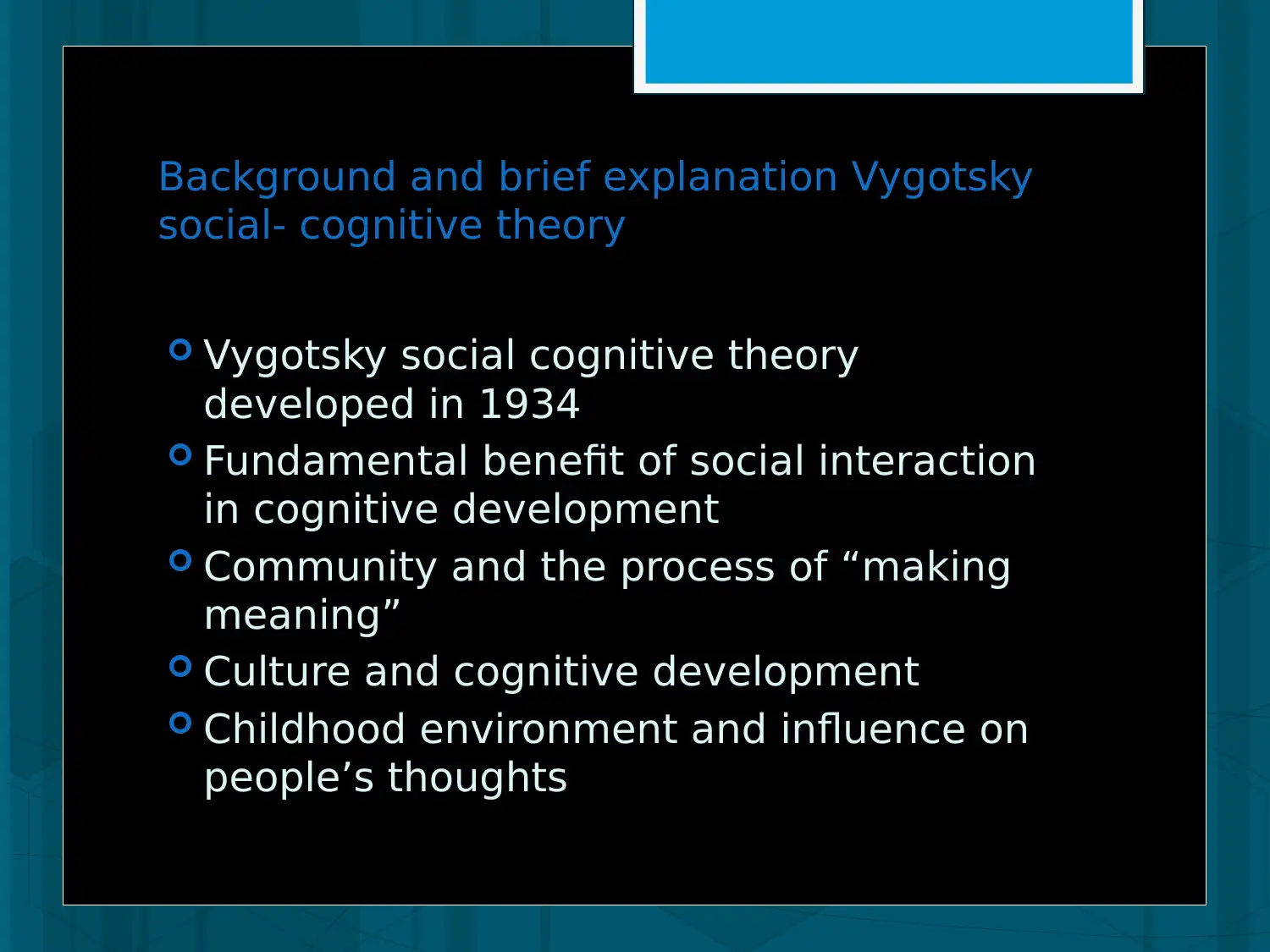
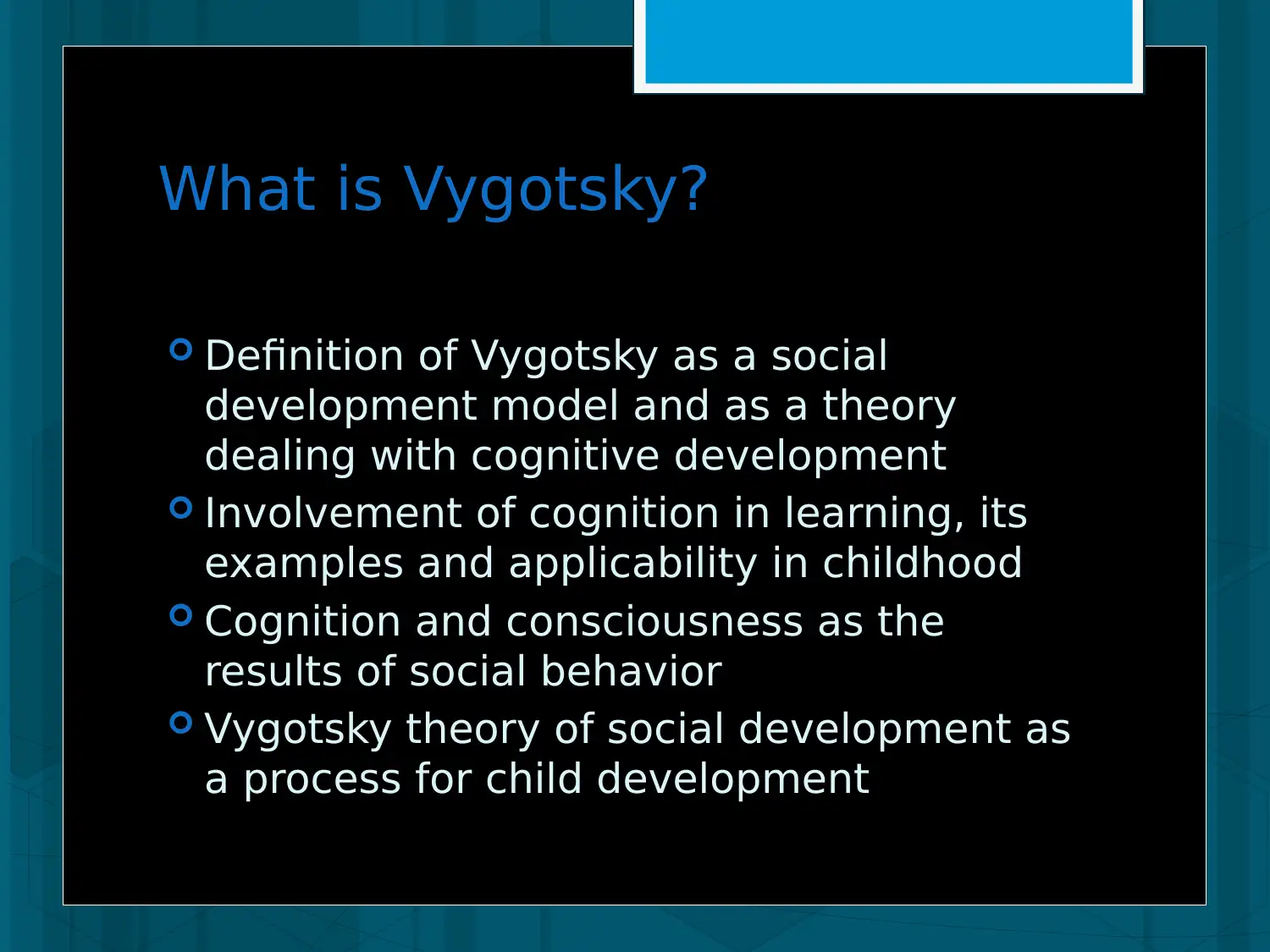

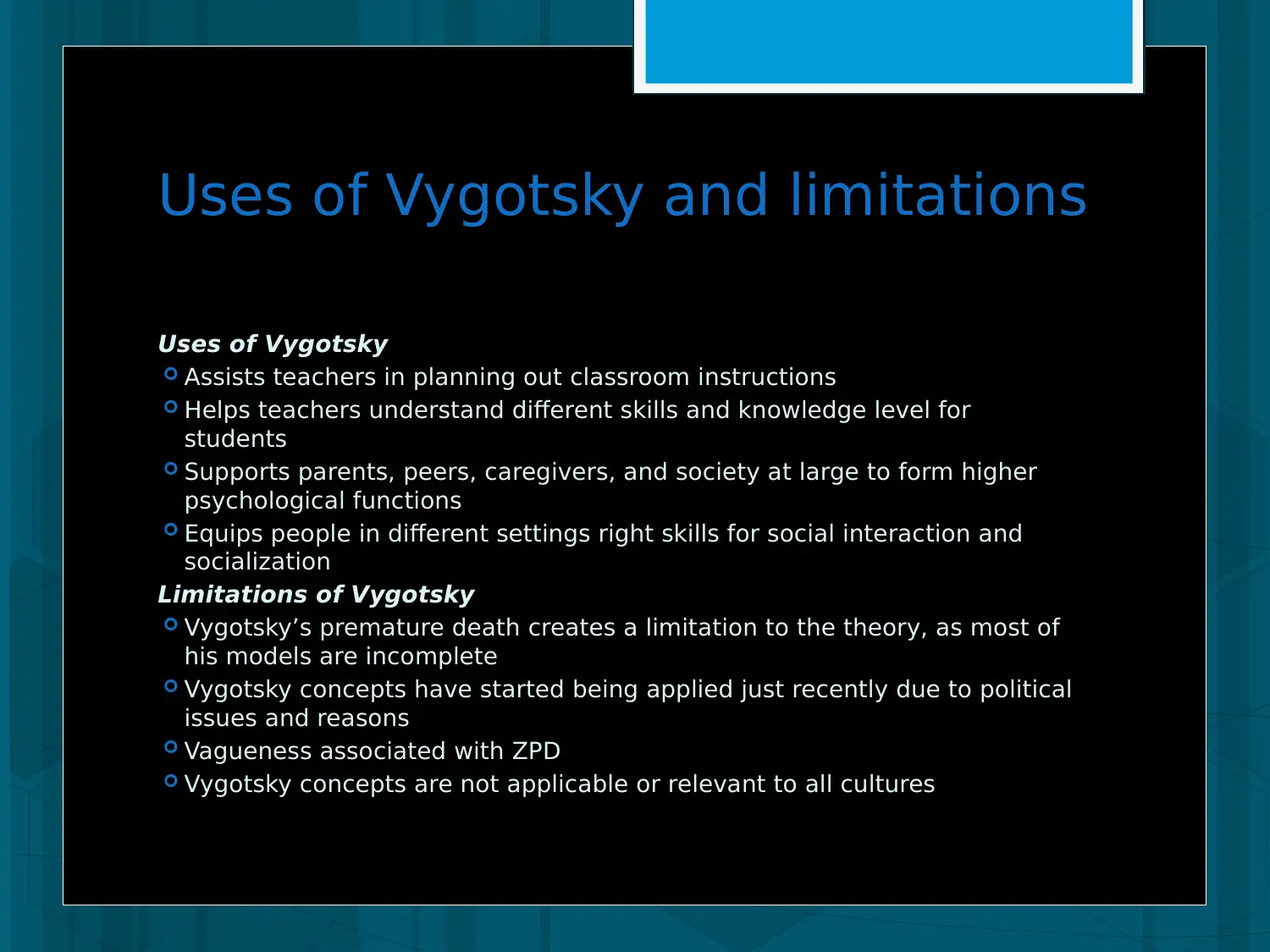
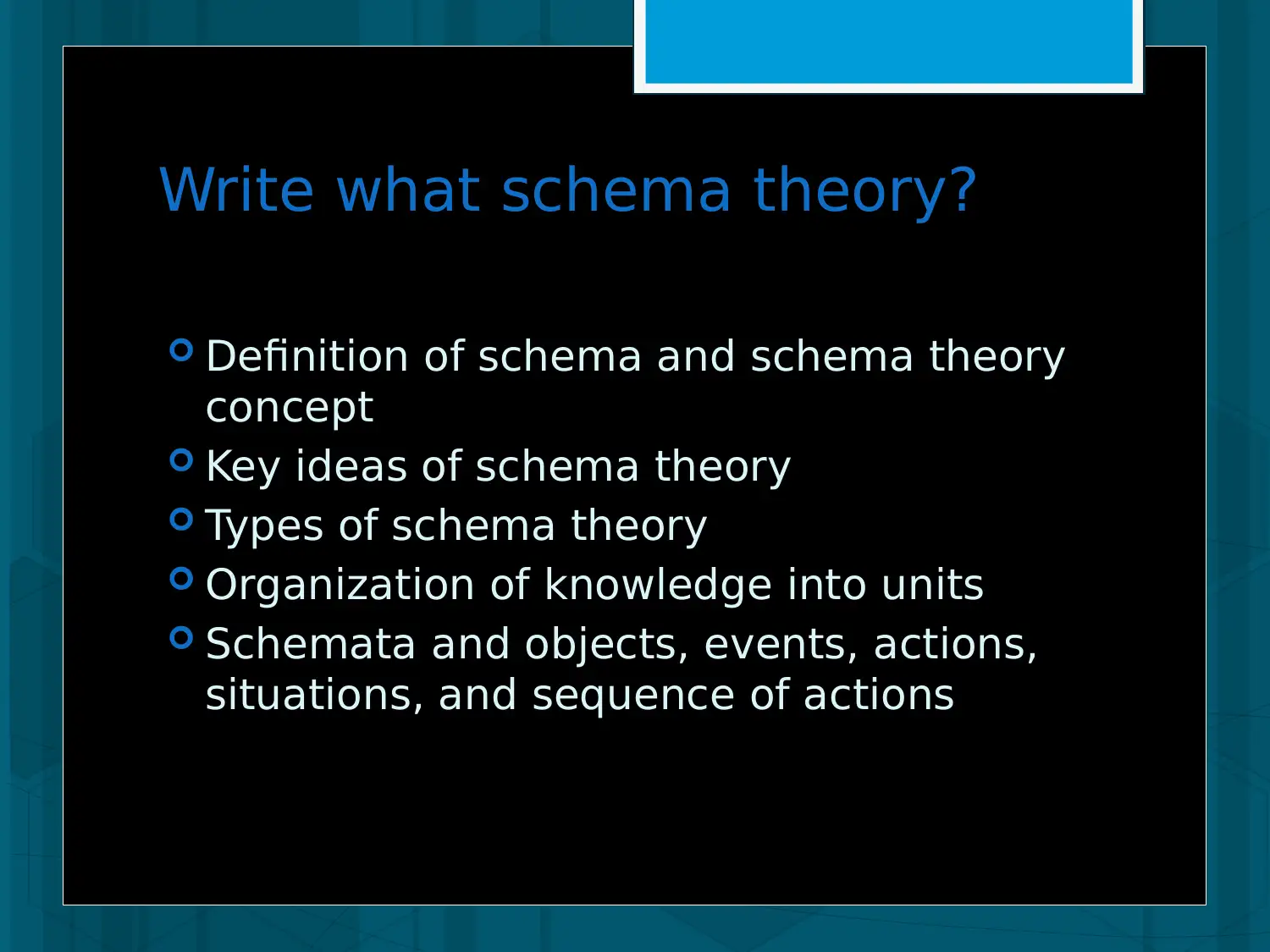
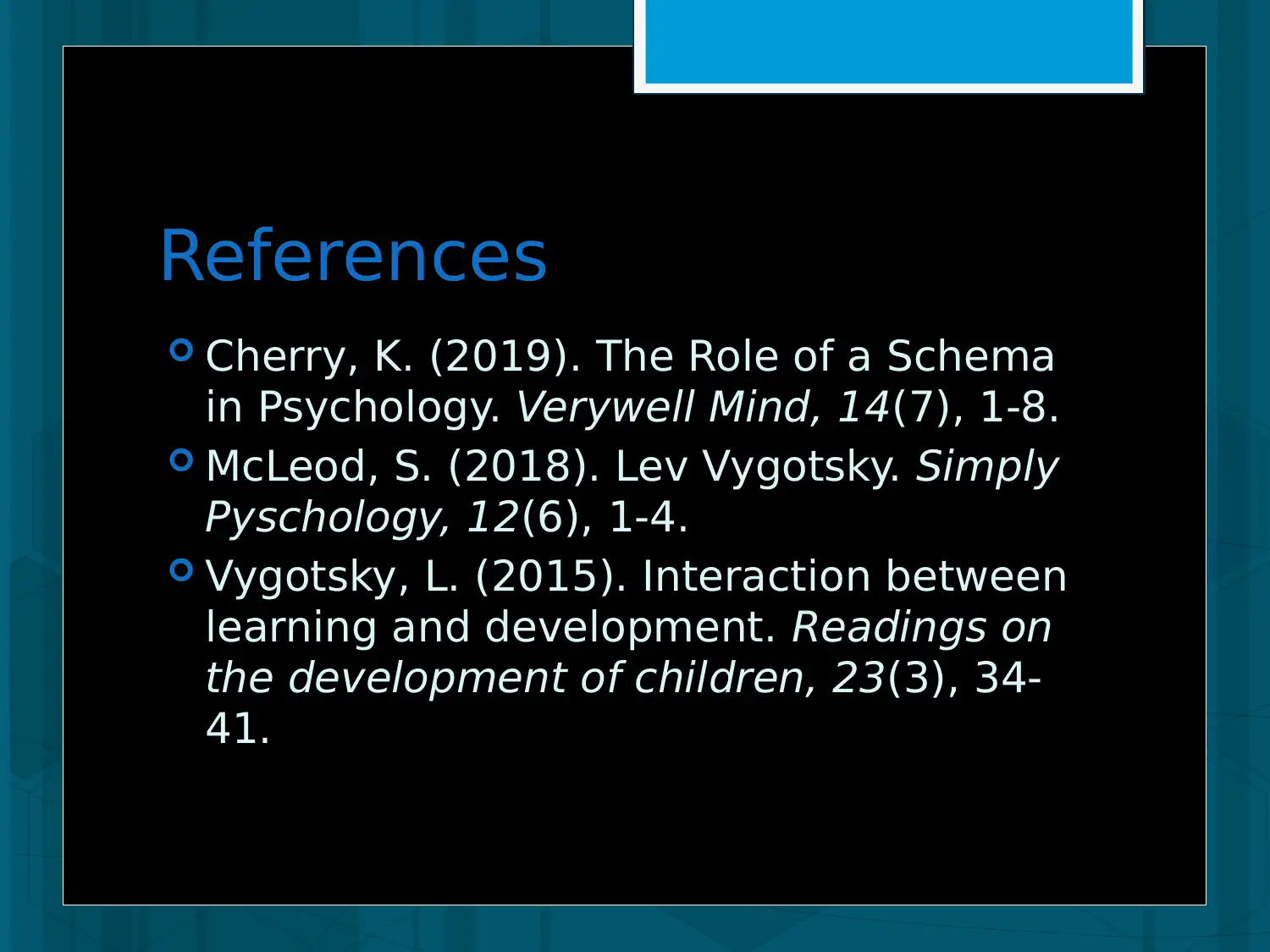






![[object Object]](/_next/static/media/star-bottom.7253800d.svg)